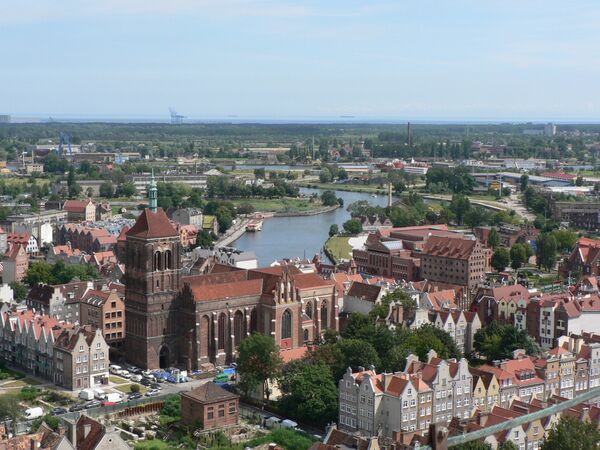MOSCOW, October 15 (RIA Novosti) – A statue in Poland depicting a Soviet soldier raping a pregnant woman while holding a gun to her head has been taken down and its sculptor detained for police questioning, Polish media reported.
The statue – titled “Komm Frau” – German for “come here, woman” – shows a heavily pregnant woman in a dress lying on her back with a soldier kneeling between her legs, pulling her hair with one hand and putting a gun in her mouth with the other.
It was erected illegally on the Avenue of Victory in the northern Polish city of Gdansk on Saturday evening, according to Polish Radio.
Artist Jerzy Szumczyk, a fifth-year student at the city’s Academy of Fine Arts, told the radio station that he had made the statue as a way of coping with his feelings after researching mass rape by the Soviet Red Army as it moved across Eastern Europe toward Berlin in 1944-45.
The statue was removed and police briefly detained Szumczyk for questioning, police spokeswoman Aleksandra Siewert told Polish Radio in an article published Monday, adding that the case would be sent to the local prosecutor’s office.
After Germany’s bloody invasion of the Soviet Union in 1941 during Operation Barbarossa, in which millions of Soviet citizens were killed, the Soviet Red Army pushed across Eastern Europe on its way to capture Berlin in 1945.
Some historians estimate that Soviet soldiers raped and gang-raped as many as two million German women in the process.
Gabriele Koepp, a German woman who recounted her personal experience of being raped multiple times by Soviet soldiers at the age of 15 in her 2010 book “Why Did I Have To Be a Girl,” said that Red Army soldiers raped girls as young as eight and women as old as 90.
British historian Antony Beevor claimed the Soviet soldiers also frequently attacked Russian and Polish women, in his 2002 book on the fall of Berlin.
Russian authorities have never officially acknowledged the mass rapes. In June, Russian lawmakers proposed a bill that would impose fines and a prison term of up to five years for criticizing the Red Army’s actions during World War II.
Updated to correct dateline to Moscow, not Gdansk.


